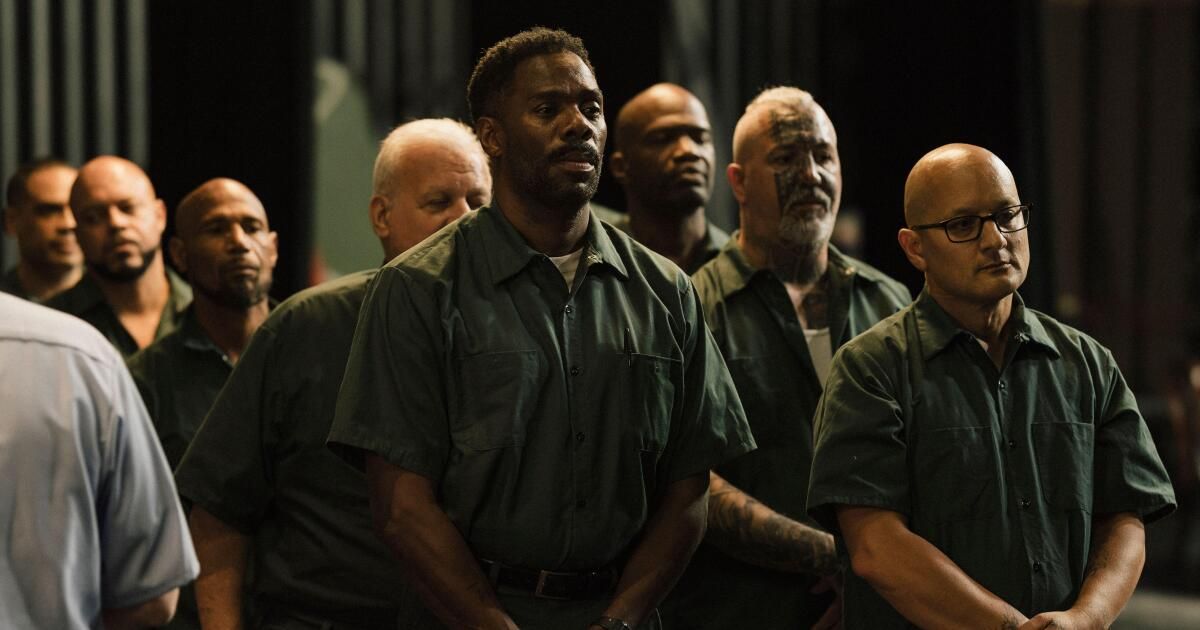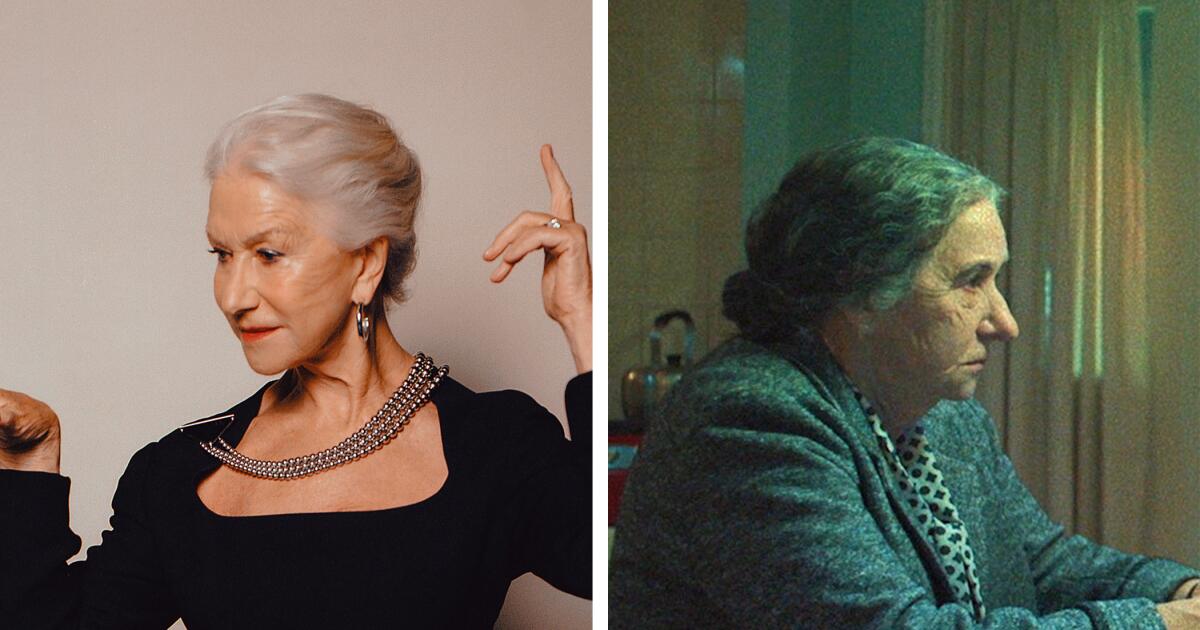A film like “Sing Sing” is a rare and precious achievement: a work of cinema of unique empathy and hand-crafted humanity, carved from the heart, with rigorous attention paid to the creative process.
The bigger story is how this film came to be, quietly captivating but integral to the text on screen. “Sing Sing” is the result of years of research and volunteer work by writer-director Greg Kwedar and his co-writer, Clint Bentley, with Rehabilitation Through the Arts, a theater program for incarcerated men at the Sing Sing Correctional Facility. Kwedar and Bentley initially attempted to mount a narrative film project about the RTA with professional actors, but they were never able to capture the magic they experienced in the room itself, watching the prisoners. So they decided to bring the room itself to the screen, casting a group of RTA alumni along with stars Colman Domingo and Paul Raci.
In “Sing Sing,” the supporting cast all play themselves (or something like them) and give excellent performances. Domingo takes on the role of John “Divine G” Whitfield, a man incarcerated at Sing Sing who has become a playwright and actor thanks to the RTA. Raci plays RTA professor Brent Buell with his trademark irascible “Sound of Metal” warmth, while one of Domingo’s longtime collaborators, Sean San Jose, gives a terrific performance as Mike Mike, Divine G’s close friend. The real moment of star birth in “Sing Sing,” however, belongs to Clarence “Divine Eye” Maclin, who plays himself, a man hardened by his past and present who finds grace and tenderness in the theater.
The plot follows the production of the RTA's first original play, a time-travel comedy mashup that moves from ancient Egypt to gladiatorial arenas to the Old West, complete with a visit from Freddy Krueger. (It's based on Buell's actual play, “Breakin' the Mummy's Code,” detailed in a 2005 Esquire article by John H. Richardson.) But the film is about much more than these men putting on a show. It's about the hope and heartbreak within these walls and the personal growth and triumph these men experience together onstage. It's a stark reminder that prison life is still life.
Kwedar demonstrates remarkable patience with his filmmaking, both in form and storytelling. Cinematographer Pat Scola shoots on 16mm film, which requires the kind of care and thought that this story does as well. The look is rich and saturated in a warm palette of earthy golds and greens that reflect both the natural and institutional settings.
“Sing Sing” establishes a visual motif of slow zooms to situate the characters in their spaces and draw our attention to their interactions, but also to constantly remind us where they are, even when they find emotional escape. In the theater room, as the men share with each other or engage in improvisational games, the camera is loose and at eye level, inviting the audience to become a participant.
Clarence Maclin, left, and Colman Domingo in the film “Sing Sing.”
(A24)
Kwedar and Bentley’s script is deft and subtle, and personal stories emerge naturally in conversation. They also make the powerful choice to avoid melodrama and the kind of violence one might expect from a typical “prison movie.” There is loss, pain and disappointment, but this is not a sensationalized portrait of prison ritual. It is a humble affirmation that prison life goes on with all its tragedies and triumphs: loved ones are lost and challenges seem insurmountable, but hard work pays off and there are still happy surprises ahead.
In this deeply empathetic performance, “Sing Sing” makes a powerful argument for the existence of humanity within a space designed to dehumanize. RTA is an oasis in an institution where daily life is filled with humiliations large and small and persistent reminders that their time and lives are not their own, with room searches, verbal abuse, and parole hearings shaping their reality.
Domingo, who has recently appeared in “Rustin,” “The Color Purple” and “Zola,” is the kind of actor who can do anything, but he plays this kind of quiet, dignified, heartbreakingly hopeful character almost better than anyone. He’s the beating, bleeding heart of “Sing Sing,” but he allows his ensemble cast to shine even brighter and take center stage in its big moments. St. Joseph delivers a monologue that’s one of the most devastating of the year. But Maclin steals the movie by playing out his own personal journey as an initially tough man who slowly allows himself to open up and let in light and love.
If it seems like Kwedar doesn't quite know how to end the film (there are too many endings cluttering up the conclusion), that's a forgivable infraction. We can almost feel him searching for the right moment to let us go, the film itself being an all-too-brief moment of grace that you don't want to miss.
Katie Walsh is a film critic for the Tribune News Service.
'Sing Sing'
Classification: R, for language in general
Execution time: 1 hour, 45 minutes
Playing: In limited release on Friday, July 12












